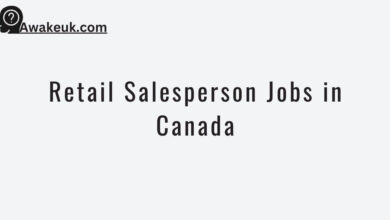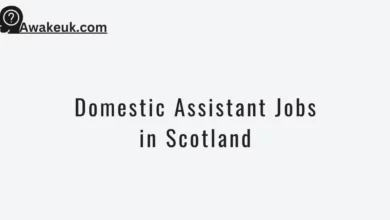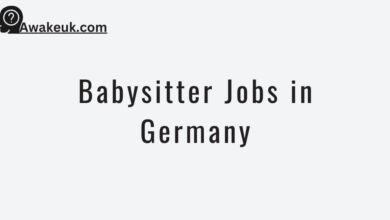Visa Sponsorship Jobs in Bulgaria For Foreigners 2024

Do you want to find a place to live and work in Central America? Do you need a job in Bulgaria for your visa to be paid for? Like most countries in Eastern Europe, Bulgaria switched from a highly state-controlled system to a market economy. Now that Bulgaria is a full member of the European Union, it has a strong economy and a good job market for people from other countries.
Bulgaria is in a good place in the European Union right now, with low prices and a skilled workforce. Because of this, a lot of international companies have set up shop in Bulgaria to save money. Most of the time, these businesses hire skilled people for jobs that don’t require them to know Bulgarian or any other language besides English.
In this post, you will learn about getting a job in Bulgaria with a visa sponsorship, the different kinds of work visas in Bulgaria, how to get a Bulgaria Work Visa, how to get a job and a work and residence permit in Bulgaria
Visa Sponsorship Jobs in Bulgaria for Foreigners
These are the jobs in Bulgaria that can help foreigners get visas.
- Product Manager
- Senior Data Engineer
- Sr. Engineer Customer
- Senior Software Engineer
- Report Developer
- Director of Engineering – Growth
- Princ Engineer Quality
- Principal Eng Design Enablmt PDK
- Sr Analyst Real Estate Management
- Engineering Manager, Sales Ops Team
- Sr IC Design Engineer
- Brand Manager
- MTS Business Analyst
- Small Business Account Executive
- Back-end Architect
- Product Designer
- Growth Product Manager
- UX Researcher
- Senior Growth Product Manager
- Director of Marketing Operations
- Sales Manager
Companies in Bulgaria that provide Sponsorship
Here are some of the companies in Bulgaria that can help you get a visa:
- Toptal
- Uber
- SmartChoice International Limited
- Agoda
- JPMorgan Chase
- Payhawk
- Espressif Systems
- Freestar

Benefits of Jobs in Bulgaria
- Price of living: Compared to many countries in Western Europe, the cost of living in Bulgaria is relatively low. In general, housing, transportation, and daily costs are more affordable.
- Competitive Compensation: While the average wage in Bulgaria may be lower than that of some Western European nations, it is frequently competitive within the region. The reduced cost of living allows your salary to stretch further.
- The taxation of: The personal income tax rate in Bulgaria is 10%, which is one of the lowest in the European Union. This means that more of your earnings are retained.
- Vivacious Cities: The vibrant cities of Sofia, Plovdiv, and Varna in Bulgaria offer a variety of cultural, recreational, and amusement opportunities. These communities are also renowned for their architectural and historical attractions.
- Standard of living: Bulgaria has access to healthcare, education, and a relatively low crime rate compared to other European countries, resulting in a high quality of life.
- Natural Charm: Bulgaria is renowned for its breathtaking natural landscapes, which include the Black Sea coast, the Balkan Mountains, and picturesque rural areas. Hikers, skiers, and other outdoor enthusiasts can experience a variety of outdoor activities.
- Work-life equilibrium: In general, Bulgarians value work-life equilibrium. The standard workweek consists of 40 hours, and many businesses offer flexible work schedules.
- The educational system: The education system in Bulgaria is well-established, with numerous universities offering a variety of programs. Additionally, the cost of education is relatively modest compared to many Western nations.
- Cultural Diversification: Over the centuries, numerous civilizations have contributed to Bulgaria’s diverse cultural heritage. This diversity is reflected in the art, culture, cuisine, and festivals of this Latin country.
- Membership in the EU: The benefits of Bulgaria’s membership in the European Union include access to EU-funded projects and the ability to travel and operate freely within the EU.
- Expanding Labor Market: Multiple industries in Bulgaria have experienced growth, including IT and technology, outsourcing, tourism, and manufacturing. This has increased employment opportunities, particularly in cities such as Sofia.
- Security and Safety: Bulgaria is regarded as a safe country with a low crime rate, making it an ideal location for families and individuals.
What are common jobs in Bulgaria?
In the past, the most important industries in Bulgaria were metallurgy engineering, making machines, making chemicals, and farming. In recent years, however, attention has shifted to energy, tourism, transportation, information technology, food, pharmaceuticals, and textiles. These are the fields where there are the most job openings.
What is reasonable pay in Bulgaria?
The average monthly salary in Bulgaria is 3,370 BGN, which is equal to $1,900 USD. That is, half of the employees make more than 3,370 BGN, and the other half make less.
Read More: Government Jobs in UK – Apply Now
Getting a Job and a Work and Residence Permit in Bulgaria
In Bulgaria, it’s easy to get a job if you’re good at any kind of business that has a lot to do with technology. Because wages are lower than in Western Europe, skilled outsiders can find work in many different fields.
EU Citizens: If you are an EU person and want to start a new job in Bulgaria, you do not need a work permit. Because there isn’t a lot of red tape, you will be able to fight on the same level as EU citizens.
Non-EU Citizens: If you are not from the EU, you will most likely need a work permit to work in Bulgaria. Getting a work permit in Bulgaria isn’t hard, and most of the time, your company will take care of it. The most important thing you need to get a work visa in Bulgaria is a written agreement between you and your employer.
Bulgarian Work Visa Categories
There are different types of visas for foreigners who want to visit Bulgaria. As a member of the European Union (EU), Bulgaria lets people from other EU countries work there without a visa or work pass.
People from the following countries can get Bulgarian visas:
- Type A airport transit visas
- Type C visas for short stays
- Type D visas for long stays
For foreign workers to get a work permit in Bulgaria, they need a Type D visa.
If an employee of your company needs to go to Bulgaria for a short work trip or conference, they will almost certainly need a Type C visa.
Requirements for obtaining work visas for Bulgaria
The foreign worker’s employer in Bulgaria must make the application for a work pass. But the worker must also send in some of the appropriate paperwork along with the application. The filing that needs to be done:
- Three photos from the passport of the candidate.
- a copy of the employee’s passport.
- a letter that explains why the person needs a work pass.
- a copy of the employer’s Bulgarian company registration certificate
- The contract for the job.
- documents that show the employee is qualified, such as a diploma, any relevant certificates, and proof of previous work.
- any other paperwork that has to do with the job.
- application for a work pass that has been filled out.
The worker will also need a visa for a long stay. To get one, they will need to show the following papers:
- A copy of the first page of their passport
- A visa picture in color
- Proof of why the trip is being taken, like a work pass.
- Proof that you have health insurance.
- Prove that you have enough money.
- Providing proof that you have a place to live in Bulgaria, like a lease or a police background check
Application Process
Because Bulgaria has strict rules about immigration, it may be hard to get a work permit there. Employers must apply for the visa on behalf of their foreign workers, and they must show the National Employment Agency that no qualified Bulgarian job seekers are available to fill the post.
When all the information is ready, the employer should send the application to the Employment Service Directorate of the National Employment Agency. Within three business days, the agency will check the papers and give them to the head of the agency. The director has one month to make a final decision about whether or not to grant the work permit.
After the permit is given, the employee has to be registered with the regional employment office of the company in Bulgaria. A Bulgarian work visa is only good for one year at a time. If the job standards haven’t changed, it can be renewed after that.
People Also Ask
-
What are common jobs in Bulgaria?
In the past, the most important industries in Bulgaria were metallurgy engineering, making machines, making chemicals, and farming. In recent years, however, attention has shifted to energy, tourism, transportation, information technology, food, pharmaceuticals, and textiles. These are the fields where there are the most job openings.
-
What is reasonable pay in Bulgaria?
The average monthly salary in Bulgaria is 3,370 BGN, which is equal to $1,900 USD. That is, half of the employees make more than 3,370 BGN, and the other half make less.
-
Is Bulgaria Schengen?
Currently, all EU member states except Bulgaria, Cyprus, Ireland, and Romania are part of the Schengen Free Travel Area, which also includes the non-EU states of Iceland, Norway, Switzerland, and Liechtenstein.



